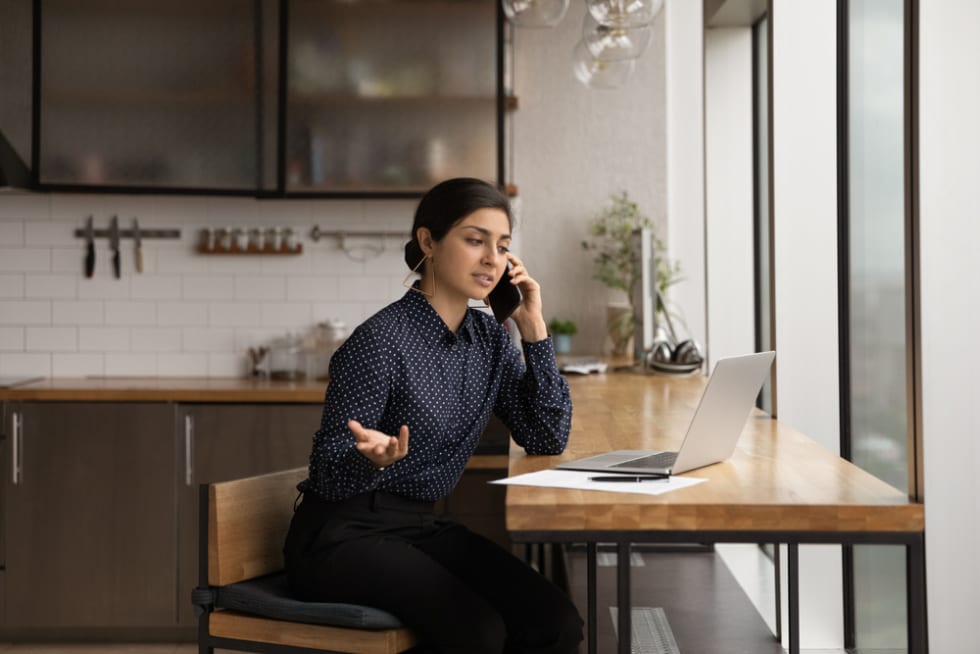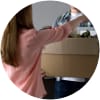18 Apartment Security Tips for Property Managers

As a property manager, one of the most important aspects of your job is to ensure that the property and its tenants are safe. Apartment security measures can mean anything from performing routine maintenance to installing deadbolts on your doors.
Whether you’re a seasoned property manager or just starting out, following the best security practices can save you a lot of time and frustration.
Check out our in-depth guide about apartment security for property managers. These tips can help keep your property safe.
Apartment Security and Safety Tips
Don’t know where to start when it comes to apartment security? Don’t worry. We’ve got you covered with 13 essential security tips.
1. Install Security Systems Throughout the Community
Burglary is a risk for all renters and homeowners. That’s the case regardless of the type of property in which they reside.
In fact, there were over 7 million property crimes in the US in 2018 alone. Even if your property is in a low-crime neighborhood, it’s important to be proactive about safety by installing an apartment security system.
These systems can act as a deterrent. They also aid residents in the event of a break-in. Additionally, they provide evidence to law enforcement in the form of video recordings.
Security systems should be installed throughout the property to ensure they offer the most coverage possible. If you are not able to secure coverage for your entire property, make sure that you have high-risk areas covered.
Communal areas such as parking lots, entry points, pool areas, clubhouses, lobbies, laundry areas, and rooftops should be covered by your security cameras.
However, to boost your security system’s effectiveness, try to take advantage of the technological improvements in the security industry. Motion sensors, audible alarms, and even glass-breaking sensors can help to keep your apartment extra secure.
The upfront cost of a high-quality system can be significant. However, it’s a good investment.
Be sure to do your due diligence by researching products and their specs. Talk to sales representatives to allow professionals to answer your questions.
Don’t forget to check out reviews about the brand’s support. You’ll want to guarantee that you get any help you need in the future.
If you don’t wish to purchase your own security system, you should consider allowing and encouraging your tenants to purchase one for themselves.
2. Frequently Check Unit Smoke Alarms and Carbon Monoxide Detectors
It's imperative to ensure that all of your units are outfitted with working smoke alarms and carbon monoxide detectors.
Your unit should comply with both federal and local laws regarding smoke alarms and carbon monoxide detectors. If your unit isn’t up to code, you risk putting your tenants in danger and punishment from the law.
You should change fire alarms and smoke detectors every ten years. However, some people recommend that you should check them much more frequently — at least once a month.
You may perform these checks yourself. You can also work with tenants to ensure that they are checking their alarms regularly.
These checks can be as simple as pressing the test button to ensure that the alarm is in working order.

3. Install Deadbolt Locks on All Unit Doors
A deadbolt is stronger than a regular lock. It can help to prevent burglary, as it’s much harder to break. Installing deadbolts on all doors, including back doors, can add an extra layer of security to your units.
You should regularly maintain locks by performing routine checks. A loose or defective lock can be an invitation for criminals.
If you want to go above and beyond, including an electronic or passcode lock can help tenants who frequently lose their keys. It’s also a more secure option. That’s because you can update the code regularly.
4. Check the Lighting Frequently
Lighting can drastically impact a security camera’s ability to capture high-resolution images. Oftentimes, security cameras with built-in features help them avoid drastically reduced image quality in low-light conditions.
Unfortunately, those cameras can cost quite a bit more than traditional security cameras. Additionally, even cameras with night vision features can suffer from reduced image and video quality in low-light conditions.
Checking the lighting to ensure that all areas are well-lit can help you avoid the headache of trying to identify perpetrators or incidents from grainy dark videos and images.
5. Secure Sliding Doors and Windows
If your unit features any sliding doors, you should ensure that these doors are protected as well as any other. While you may be required to outfit these doors with a special locking mechanism, they need to be secured. That’s especially the case if they face a public area.
Windows should be able to completely close. The glass shouldn’t be fractured and they should have a secure locking latch. If any of your windows are missing these features, fix them immediately to upgrade your security.

6. Secure Outdoor Railings and Elevated Spaces
The International Residential Code (IRC) suggests that any outdoor space such as a balcony or deck should have a safety railing or gate that’s at least 36-42 inches high. However, landlords should adhere to local and state laws to ensure that they are in compliance with residential codes.
You should perform regular maintenance on railings. They can deteriorate with time. If the structural integrity of your railing is compromised, you’ll need to replace it.
Check on your railing’s condition twice a year. Perform checks prior to peak season when your tenants will be utilizing the outdoor space more frequently or after the harsh winter months.
7. Conduct Safety Checks on Community/Unit Stairs
Similar to outdoor railings, you’ll need to check any stairs on the property regularly for deterioration. Stairs in poor condition with loose floorboards, bad railings, or nails that catch things can cause significant injury to tenants.
Protect yourself and your tenants by thoroughly assessing the condition of your stairs. That includes everything from their supporting structure to their materials.
8. Ensure Emergency Exits are Known and Visible
An emergency exit is another residential feature that is regulated by local and federal laws to keep tenants safe. These exits should be clearly posted throughout the property if you own a property with multiple units and floors.
You should discuss these exits with your tenants when they sign their lease. If you make any changes to your emergency exits, you need to inform your tenants immediately.
9. Ensure Community Appliances are Maintained and Up To Standard
All appliances throughout your unit should be in working condition and up to current safety codes.
Major appliances such as the HVAC unit and water heater should be assessed by a professional each year for cleaning and routine maintenance. Tenants should clean the lint trap for the dryer regularly to prevent it from becoming a fire hazard.
Unfortunately, appliances aren’t meant to last forever. Keep track of the age of all of the appliances in your units. This can help you prepare for when you need to make a major replacement or upgrade.

10. Are Community Electric Outlets Up To Regulatory Standards?
If you own an older property, it’s important to ensure that you’ve updated the electrical outlets to comply with the current code. In 1971, the National Electrical Code started to require Ground Fault Interrupting outlets (GFIs).
These outlets feature a hole for a third prong, the ground. Its purpose is to protect residents from electrocution or shock due to unexpected electric currents.
These outlets should be used in kitchens, bathrooms, laundry rooms, and any outlets located on the exterior of the property. This can help to prevent tenants from electrical shock. Have a licensed electrician install GFIs to get your property up to code.
11. Keep Common Areas Secure for Tenants
Secure common areas such as pools, gyms, laundry facilities, storage rooms, and outside areas with keypads or locks. Your security system should also monitor these areas. This can help to ensure that no one gains access to the amenities without permission.
If anything goes missing from a common area, such as a package, you can use surveillance footage from your security system to catch the culprit and settle disputes.
These systems can also provide evidence against tenants who abuse their privileges. One example may be frequently allowing friends or family to do laundry on the premises.
12. Test Painted Walls and Woodwork for Lead
If your rental property was built before 1978, it may be contaminated with lead paint which was commonly used before being banned due to the danger of lead poisoning.
If your walls test positive for lead paint, you’re legally obligated to disclose its presence to tenants. You may find that your pool of prospects is limited for a unit with lead paint. It’s a good idea to consider getting it removed altogether to avoid this issue.

13. Aid in Preventing Package Theft
Preventing porch pirates from striking can be as simple as package tracking, having your packages delivered to a secure location, or asking a neighbor to grab your packages.
Encourage your tenants to follow the best practices for preventing package theft. Provide them with material reminders during the holiday season or upon move-in.
14. Post Emergency Routine and Numbers
“What’s the number of 911?”
It’s a silly question, but one that could very likely come out of someone’s mouth in the event of an emergency. Unfortunately, emergency-induced panic situations can cause people to be forgetful and reduce decision-making time.
In short, panic and stress can make even the most stoic individuals pretty useless in an emergency.
To help your tenants and their guests overcome panic in an emergency situation and make safe decisions, be sure to post safety and emergency documents in communal areas around your apartment community.
These documents should include:
- Important Numbers (police, fire department, poison control, etc.)
- What to Do In a Fire Instructions (exits, where to meet, etc.)
- Building Maps
- How to Give CPR
- What to Do In an Emergency (earthquake, flooding, storm, etc.)
Additionally, be sure to check your state and local laws regarding mandated postings in residential buildings.

15. Hire a Security Guard
Hiring a security guard can help tenants feel at ease. Having a professional around to handle any potentially illegal or dangerous situations is always helpful.
If you have a large complex, hiring a security guard can help expand the monitoring range and provide a quick response to any incidents.
That said, do your research before choosing which security company to work with or which criteria you will use to hire an in-house security guard.
It’s important to know what requirements and certifications look for, so you end up with qualified security personnel.
16. Ensure That Your Tenants Have Renters Insurance
In the case that anything happens, tenants having renters insurance is essential.
Renters insurance can help to help tenants purchase replacements for any lost goods or pay for any damages for which they are found liable.
All in all, renters insurance can benefit both tenants and landlords or property managers simply by alleviating the negative effects of theft, property damage, or another dangerous incident.
If you haven’t already, require any new applicants or tenants renewing their leases to obtain some form of renters insurance and provide proof-of-coverage.
17. Regularly Check On Systems and Keep Them Up-to-Date
Keep an eye out for system updates by making routine checks onto your security system. Sometimes, a system update may take a security system offline for a set time.
In rare cases, they may cause the system to fail to work correctly until an update patch is released.
Of course, this is a worst-case scenario, but it’s a good idea to sign up for notifications regarding system updates, so you are prepared for them.
It’s also a bad idea to skip out on making system updates just to avoid any hassles. Security system updates help keep your security system functioning properly and help to keep your data safe. They’re kind of a big deal.

18. Frequently Check-In with Tenants and Encourage Best Practices
The best security strategy is a preventative one. Make sure to inform all new tenants of your community’s security procedures, systems, and move-in protocol.
Supply tenants with detailed lists of best practices to follow. You can include tips regarding:
- maintenance
- discouraging duplicate keys
- testing smoke alarms
- keeping expensive items safely stored
You should also promote a reporting policy in which you encourage tenants to report any suspicious activity or anything “off” on the property. It’s better to be safe than sorry.
Key Takeaways
Ideally, tenants would be able to take care of security by themselves. However, as a property manager, it is up to you to protect yourself and your tenants. Following best practices as we listed above can help to prevent burglary, theft, and any other dangerous situations.
Furthermore, it’s essential to adhere to any local and federal laws regarding residential safety procedures. Be sure to do your due diligence to stay in compliance with the law.
Whether you’re a seasoned property manager or just starting out, following the best security practices can save you a lot of time and frustration.
Check out our in-depth guide about apartment security for property managers. These tips can help keep your property safe.
Share this Article




